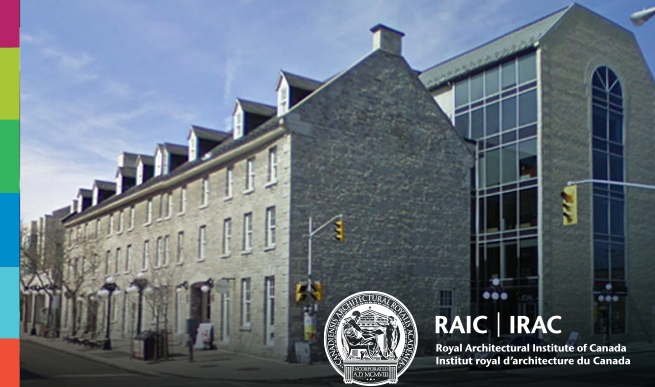
A PhD Research Fellow position available at the Department of Informatics (IFI), University of Oslo (UiO) for the UiO Energy Convergence Environment project PriTEM (Privacy Preserving Transactive Energy Management). The fellowship is for a period of 3 years with the possibility of the fourth year- and is funded by the Department of Informatics, University of Oslo. The additional one year of funding is subject to teaching obligations.
The purpose of the fellowship is research training leading to the successful completion of a PhD degree. No one can be appointed for more than one PhD Research Fellowship period at the University of Oslo. Preferred starting date 01.09.2022.
PriTEM is a cross-disciplinary project led by the Department of Informatics (IFI), Faculty of Mathematics and Natural Sciences (MatNat), University of Oslo (UiO). The cross-disciplinary research in PriTEM is conducted in collaboration with the following departments:
- Department of Technology Systems (ITS), MatNat, UiO
- Department of Psychology (PSI), Faculty of Social Sciences, UiO
- Department of Energy and Resources Law (ERL), Faculty of Law, UiO
- Department of Private Law/Norwegian Research Center for Computers and Law (SERI), Faculty of Law, UiO
The external partners are:
- Norwegian Water Resourses and Energy Directorate (NVE)
- Nord Pool
- Eye Networks AS
- Smart Innovations Norway AS
- Alpha Venturi AS
- Prosa Security AS
Transactive energy management (TEM) is a new concept for peer-to-peer (P2P) energy trade that has the potential to create a truly participatory and distributed energy market with increased deployment of sustainable energy through active participation and contribution from local prosumers as key stakeholders in the energy ecosystem. Understanding aspects related to prosumers is crucial for acceptance and adoption of the P2P energy trade paradigm. Regulatory and policy aspects also play a vital role in such a transition. There is however a clear knowledge gap as aspects related to users, data and energy law are less explored. The primary objective of PriTEM is to to generate new knowledge through cross disciplinary research synergy to bridge this gap. In particular, we will examine and characterize the socio-psychological aspects that can act as potential barriers in the transition towards a TEM framework, understand the role of trust, transparency and prosumer empowerment in this context, and develop computation efficient and scalable privacy preserving and secure data sharing solutions to build and enhance digital trust to empower the prosumers. Finally, the project will integrate the socio-psychological and regulatory aspects into a holistic framework to optimize the TEM process incorporating technical challenges related to the energy system.
More information about the project is available here.
More about the position
The PhD position is devoted to design and develop algorithms, techniques and the framework for the interdisciplinary research for the PriTEM project. and will play a key role in integrating the results from all four Work Packages in PriTEM to develop the holistic framework for TEM. The PhD scholar’s research topic for the PhD project will be to develop distributed and computation efficient privacy-preserving solutions to empower the prosumers for actively participating in the TEM ecosystem by building and enhancing trust in the system- to pave the path towards a socially inclusive, equitable and sustainable TEM frameworks. In terms of approach, the PhD project’s main focus will be on data analytics, and machine learning for designing the distributed an autonomous framework for transactive energy systems- with privacy preservation and trust enhancement as two main objectives. Topics such as optimization, edge computing/edge intelligence, Deep reinforcement learning, federated learning, etc. can be of interest in this context. The main objectives of the PhD position are thus to:
(i) To investigate and understand the prosumers’ perspective of technology acceptance and active participation in the context of transactive energy management
(ii) To identify the general, personal, and sensitive data of the prosumers that the transactive energy systems require; and to design distributed architectures to support the privacy requirements.
(iii) To exploit state of the art data analytics techniques and machine learning algorithms, (and to develop new algorithms) to enhance communication and computation efficiency
(iv) To examine the feasibility of the architectures and algorithms through prototyping and experimentation
The work will be conducted in close collaboration with another PhD student at the Department of Psychology (WP1), another PhD student at the Department of Informatics (IFI)- (WP2), and a postdoctoral researcher at IFI (WP5) within the PriTEM project, and the solutions developed by the PhD candidate will be a part of the holistic TEM framework in PriTEM. The ideal candidate for this position would be a candidate with strong background in communication and computing networks/ energy informatics, and also some knowledge/experience on social science related research in terms of commonly used research methodologies and tools.
The candidate will have primary affiliation with the Energy Informatics group at the Department of Informatics (IFI), UiO, and will collaborate with other partners in the PriTEM project.
Qualification requirements
The Faculty of Mathematics and Natural Sciences has a strategic ambition to be among Europe’s leading communities for research, education and innovation. Candidates for these fellowships will be selected in accordance with this, and expected to be in the upper segment of their class with respect to academic credentials.
Mandatory qualifications:
- Master’s degree (120 credits equivalent of the Norwegian Master’s degree program) in Electrical Engineering, Communication Engineering, Computer Science or other relevant disciplines, with a Master Thesis in the Master’s degree program. Candidates without a completed Master’s degree have until 30 June 2022 to complete and document the final grades.
- Foreign completed degree (M.Sc.-level) corresponding to a minimum of four years in the Norwegian educational system
- Must have documented significant knowledge on communication and computation networks- privacy preservation, information security, etc.
- Must have documented significant Knowledge/Research Background, or Must be able to demonstrate skills on Data Analytics and Machine Learning
- Must have very good programming competence in Python, Java, C/C++ or equivalent
The evaluation considers many aspects of excellence, as well as the personal drive and organizational skills.
Desired Qualifications:
- Research experience/knowledge about social science research methods/tools (qualitative/quantitative)
- Excellent presentation skills
- Teaching experience
- Experience working in an International Team
Grade requirements:
The norm is as follows:
- the average grade point for courses included in the Bachelor’s degree must be C or better in the Norwegian educational system
- the average grade point for courses included in the Master’s degree must be B or better in the Norwegian educational system
- the Master’s thesis must have the grade B or better in the Norwegian educational system
- Fluent oral and written communication skills in English.
- English requirements for applicants from outside of EU/ EEA countries
The purpose of the fellowship is research training leading to the successful completion of a PhD degree.
The fellowship requires admission to the PhD programme at the Faculty of Mathematics and Natural Sciences. The application to the PhD programme must be submitted to the department no later than two months after taking up the position. For more information see:
http://www.uio.no/english/research/phd/
http://www.mn.uio.no/english/research/phd/
Personal skills
- High interest in the topic
- High motivation for interdisciplinary collaboration
- Creativeness and proactiveness
- Ability to write in a structured, clear and concise manner
The candidate should also possess good interpersonal and communication skills and show high level of motivation to work as part of an international team.
We offer
- Salary NOK 491 200 – 534 400 per year depending on qualifications and seniority as PhD Research Fellow (position code 1017)
- Attractive welfare benefits and a generous pension agreement
- A highly dynamic and motivated team of international researchers
- Career development programmes, professional courses and workshops
- Oslo’s family-friendly surroundings with their rich opportunities for culture and outdoor activities
How to apply
The application must include:
- A cover letter (one page) explaining the candidate’s background, qualifications, motivation for the position, and how/why the candidate is qualified for the position
- Curriculum vitae (summarizing education, positions and academic or industrial work experience, scientific publications)
- Academic transcripts
- A copy of Master thesis
- Documentation of English Proficiency
- Contact information (Name, relation to candidate, email and telephone number) of two-three references, including the Master supervisor(s).
The application with attachments must be delivered in our electronic recruiting system, please follow the link “apply for this job”. Foreign applicants are advised to attach an explanation of their University’s grading system. Please note that all documents should be in English (or a Scandinavian language).
When evaluating the application, emphasis will be given to the cover letter and the applicant’s academic and personal prerequisites to carry out the project. Shortlisted candidates will be called for interview.
Formal regulations
Please see the guidelines and regulations for appointments to Research Fellowships at the University of Oslo.
No one can be appointed for more than one PhD Research Fellowship period at the University of Oslo.
According to the Norwegian Freedom of Information Act (Offentleglova) information about the applicant may be included in the public applicant list, also in cases where the applicant has requested non-disclosure.
The University of Oslo has an agreement for all employees, aiming to secure rights to research results etc.
The University of Oslo aims to achieve a balanced gender composition in the workforce and to recruit people with ethnic minority backgrounds.
Contact information
Further inquiries about the position can be addressed to Associate Professor Sabita Maharjan e-mail: sabita@ifi.uio.no, Professor Yan Zhang e-mail: yanzhang@ifi.uio.no or Professor Frank Eliassen e-mail: frank@ifi.uio.no
For questions regarding the recruitment system, please contact HR Adviser Therese Ringvold, e-mail: therese.ringvold@mn.uio.no
About the University of Oslo
The University of Oslo is Norway’s oldest and highest rated institution of research and education with 28 000 students and 7500 employees. Its broad range of academic disciplines and internationally esteemed research communities make UiO an important contributor to society.
The Department of Informatics (IFI) is one of nine departments belonging to the Faculty of Mathematics and Natural Sciences. IFI is Norway’s largest university department for general education and research in Computer Science and related topics.
The Department has more than 1800 students on bachelor level, 600 master students, and over 240 PhDs and postdocs. The overall staff of the Department is close to 370 employees, about 280 of these in full time positions. The full time tenured academic staff is 75, mostly Full/Associate Professors.
![Postdoctoral and Research Opportunities at McGill University [CA]](https://scholaridea.com/wp-content/uploads/2020/06/mcgill-university-30-may-2019-768x402.jpg)

